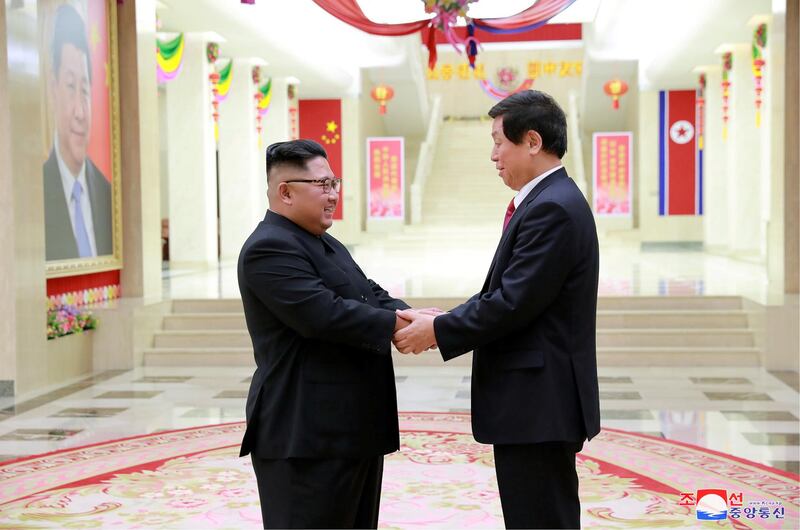Updated Sept. 09, 2023, 00:47 a.m. ET.
China will send a delegation led by a non-Politburo Standing Committee-member to North Korea to take part in the celebration of the country’s founding day later this week, a move that may expose its intricate position amid Pyongyang and Moscow’s efforts to strengthen military ties with Beijing.
“A party and government delegation from the People’s Republic of China will visit our country to participate in the 75th anniversary celebrations of the foundation of the Democratic People’s Republic of Korea,” North Korea’s official Korean Central News Agency said Thursday, adding that China’s vice premier Liu Guozhong will be leading the delegation.
KCNA did not elaborate on further details.
A non-Politburo-Standing Committee-member, Liu’s presence indicates a decline in the delegation’s stature given that North Korea places heightened importance on its national day celebrations every five years. In 2018, the Chinese delegation for 70th anniversary celebrations was led by Li Zhanshu, the third-ranking member of the Chinese Communist Party (CCP) Politburo Standing Committee then, who made his visit as a special representative of the Chinese leader Xi Jinping.
By sending Liu, China may be aiming at just merely maintaining its relations with Pyongyang, whilst keeping its distance with its hostile neighbor.

While China values North Korea as its strategic asset against the United States and its allies, particularly as a buffer zone against the expanding influence of democracies in the region, becoming too closely aligned with North Korea – especially given its desire for stronger security and military cooperation – could jeopardize its relations with the U.S. and its regional allies.
This becomes clear when Russia has formally proposedto China and North Korea for a joint naval drill in July, according to South Korea's National Intelligence Service Monday – a move that could further infuriate the U.S. in the region.
The international community has witnessed China’s economic decline and weakening real estate market in recent months. Therefore, China needs to maintain access to international markets and foreign investment in order to prevent a further deterioration of its economy. As China may seek to repair its ties with the United States and its allies, strengthening its political ties with North Korea and Russia may prove difficult.
Additionally, with Moscow poised to send its own delegation to North Korea and seeking both military and economic support from China, Beijing might be hesitant to send a representative with the authority to make policy decisions.
“While diplomatic rhetoric still emphasizes the importance of bilateral ties, it is possible that the military engagement with North Korea could be seen as a burden for China,” said Cha Du-hyeogn, South Korea’s former presidential secretary for crisis information who is now a research fellow at the Asan Institute for Policy Studies.
“And there’s also the risk that any military engagements with North Korea and Russia could further push South Korea and Japan even closer to the U.S. This would no doubt solidify the trilateral partnerships.”
“North Korea’s possibility of providing ammunition to Russia is also working as a burden to China,” Cha added. “An escalation in military interactions between Russia and North Korea might compel China to relinquish its mediatory role. The stakes are high and the ramifications complex.”
North Korean leader Kim Jong Un is set to meet Russian President Vladimir Putin this month, according to U.S. and South Korea authorities – a development that would complicate the U.S.'s plan to curb both Russian aggression in Ukraine and North Korea's nuclear ambitions.
The potential meeting comes as North Korea is publicly backing Russia in its aggression against Ukraine. Through its state media, it has reiterated its support of Russia’s aggression, raising suspicion that Pyongyang is also providing ammunition to Moscow.
Edited by Taejun Kang and Mike Firn.
Editor's note: "An earlier version of this story incorrectly reported that Liu Guozhong is a non-Politburo member."
